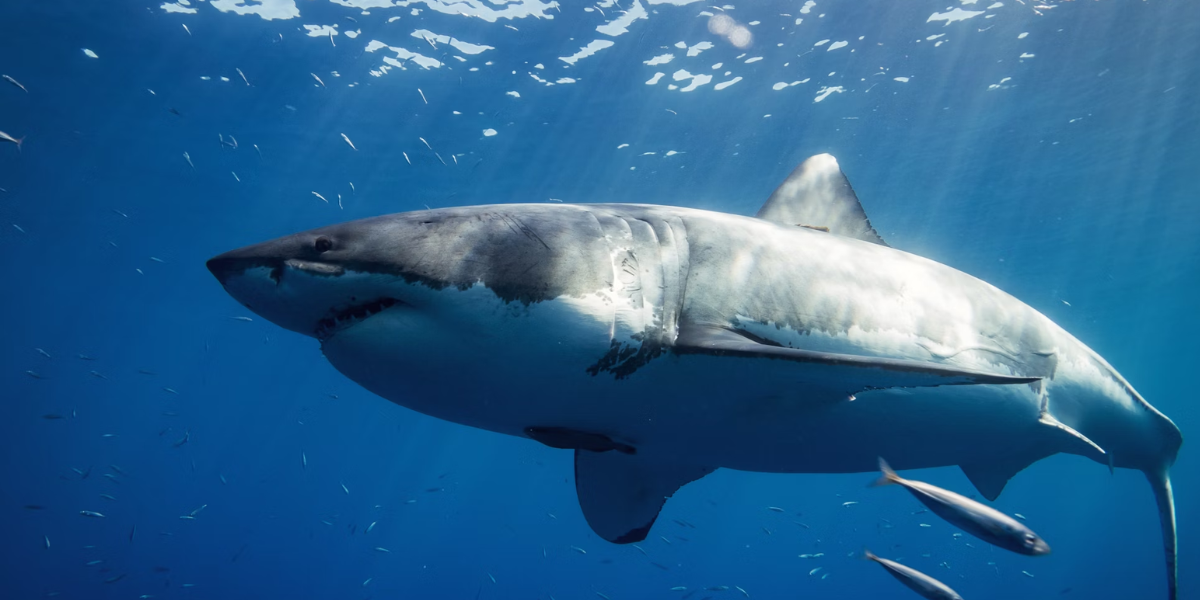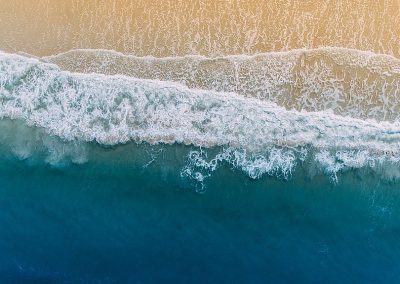The oceans around Florida are home to some of the country’s most diverse marine life.
But even the experts can still be amazed by what is lurking in the waters.
And scientists made one scary find in the waters off Florida that confirmed they need a bigger boat.
Famed great white shark reappears in the ocean off Florida
Scientists with OCEARCH, a marine research nonprofit that tracks sharks and other marine life for study, announced that a great white shark named Breton monitored by the group had returned to the Atlantic Ocean off the coast of Florida.
Breton is a 13-foot long, 1,300-pound great white that researchers at OCEARCH have tracked for years.
The group puts electronic transmitters on sharks and uses satellites to ping their location in the ocean.
Breton pinged around St. Augustine, Florida on his journey through the ocean.
The shark was spotted in the Grand Banks of Newfoundland, Canada in mid-December as he began swimming south.
He follows a pattern of moving south for the winter like many snowbirds.
Breton pinged in the Atlantic off Palm Coast, Florida on New Year’s Day 2024.
The shark was named for Cape Breton off Nova Scotia, Canada where he became the first shark that OCEARCH tagged as part of their Expedition Nova Scotia tracking program in 2020.
Great white shark known for odd doodle
OCEARCH researchers noted that the route Breton travels the ocean appears to be a crude doodle of a shark based on the pings he gives off.
#ocearch can we talk about how Breton looks like he’s doodling a shark 😂 @OCEARCH pic.twitter.com/zKux7X1GcI
— Chloe Marie (@ChloeMarieReads) May 24, 2022
Great white sharks on the East Coast follow a pattern of spending their summers in New England and migrating south to Florida for the winter.
They travel south in search of warmer water and a greater supply of food.
Breton is estimated to have traveled roughly 41,000 miles since OCEARCH began to track him in 2020.
A family from North Dakota that was shark fishing off Fort Lauderdale caught Breton in 2023.
It took three men to reel the 1,300-pound shark in before they released it back into the ocean.
“We were alternating turns left and right, probably, what, 20-30 cranks, and then the next guy was on,” Shaun Jacobson said at the time.
Good Hit Sportfishing captain Adam Reckert told WSVN that catching a great white shark in Florida is extremely rare.
“I’ve been doing this for 20 years full-time as a captain and that’s the second one that I’ve landed,” Reckert said. “The last one was about 15 years ago.”
Scientists can access data they were never able to get
The OCEARCH data lets researchers track a shark’s migration patterns, feeding habits, diet, reproduction, and more than were previously speculative.
“At OCEARCH, we’re on a mission to solve the Global White Shark Puzzle. There are nine populations of white sharks across the globe and OCEARCH’s goal is to assist regional scientists to better understand the life of the white shark in each of these populations,” the group states.
OCEARCH founder Chris Fischer told the Courier Journal that sharks are crucial to the ocean’s ecosystem.
“If we lose the apex predator (sharks) then we lose all our fish and then there are no fish sandwiches for our grandchildren,” Fischer said. “That’s oversimplified, of course, but the idea is important because many shark species are threatened by overfishing and a demand for shark fins in Asia. Their dwindling numbers jeopardize ocean habitats.”
The ocean and its inhabitants are one of the last great mysteries on the planet.
DeSantis Daily will keep you up-to-date on any new developments in this story.









